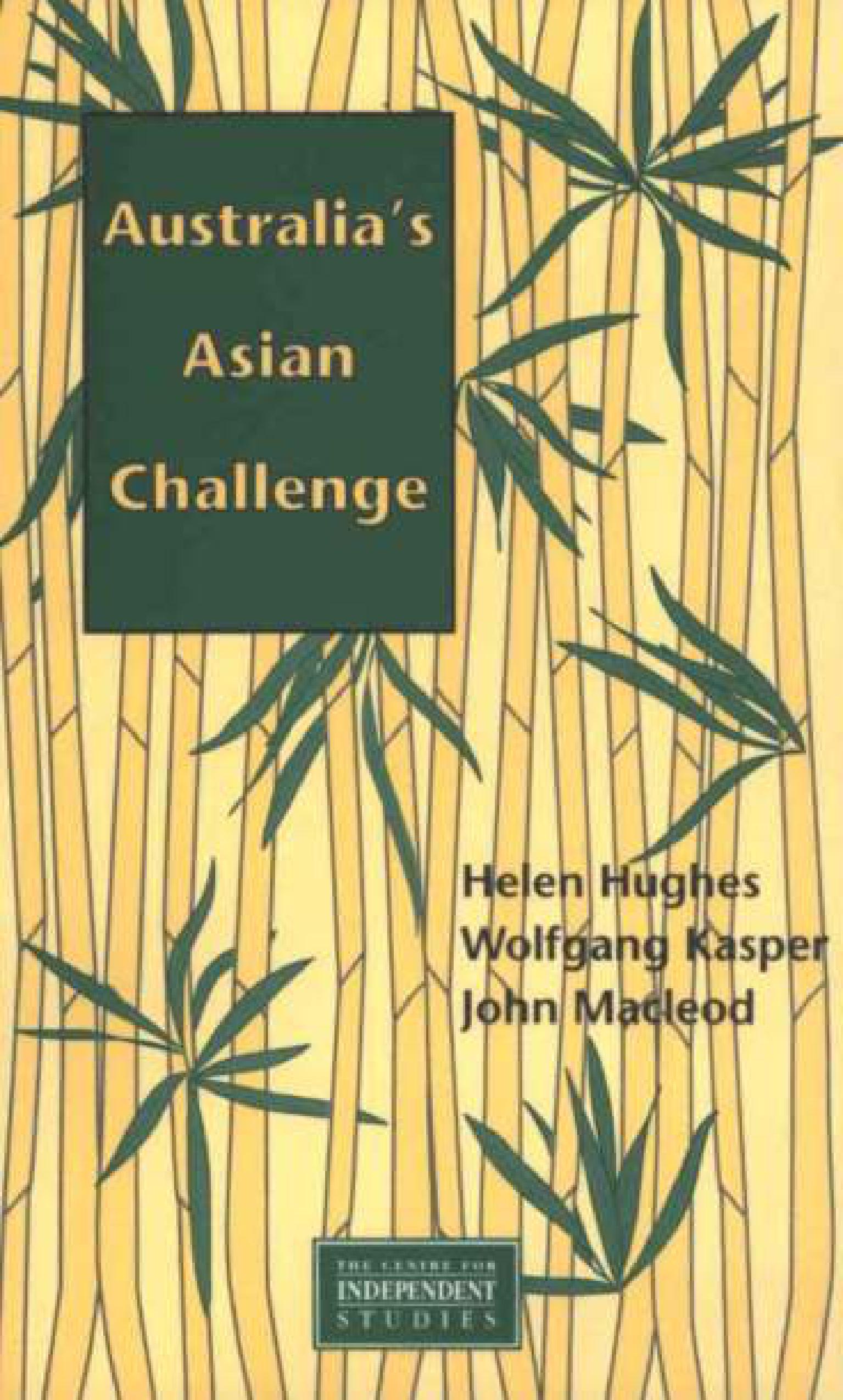
Australia’s Asian challenge is to take advantage of the many opportunities for economic, cultural, social and political interaction opening up in Asia . While Australia has done much over the last 30 year s to involve itself in the world’s most dynamic region, all the
speakers in the CIS’s Australia’s Asian Challenge forum, whose papers are collected here, identified ways in which we can do better.
While just over half of all Australia’s exports go to Japan and the developing countries of East Asia, our overall share of the region’s imports remains small. In markets such as China, Hong Kong and Malaysia the Australian share of their imports is smaller than it was in 1980.
There are problems with the way Australians do business in the region. Nevertheless, all the papers emphasise the importance of a ‘bottom-up’ approach to Asia rather than relying on ‘top-down’ government agencies. Personal network s must reach into Asia through business contacts, tourism, Asian alumni of Australian educational institutions an d migration.
Government policies have often been an obstacle to Australia meeting its Asian challenge . The slow pace of reform within Australia hampers the capacity of Australian business to be competitive in the Asian market. The government’s handling of Australian programs to teach English to fee-paying Asians damaged Australia’s reputation. Subsidies to exporters have failed to stimulate exports on a significant scale, and in some case s may have undermined firms’ potential to export. The Australian government’s attempts to form close relations with current elites may alienate the up-coming generation in some Asian nations. While APEC has not yet done much damage, it could distract attention from attempts to establish a better multilateral trading system.
Australia has much more to offer Asia than just raw materials and an attractive holiday destination. Asian countries are going to have an increasing demand for what Wolfgang Kasper calls ‘cultural capital’. As they develop, Asian nations will require institutions to facilitate free and fair economic exchange and to protect social and political liberties. In this area, Australian ideas and experience give us much we can contribute to regional development. A turning of attention to marketing our cultural capital would be a sign that Australia is capable of responding to the dynamics of the Asian challenge.
